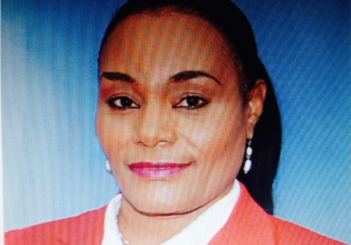
Biography
Yvonne I. Woods, PhD, MSW, CSW has over 22 years of practical and administrative experience working with children, youth and families, mental health, and military populations within the Virgin Islands Government and other social service agencies. From 2015 to 2020, she was a behavioral health contractor in the Virgin Islands National Guard’s Office of the Deputy State Surgeon. Dr. Woods also worked with the VI Department of Human Services in the Children, Youth and Families Division and at the St. Thomas Health Care Management, Inc. with youth experiencing emotional, behavioral, and intellectual problems. She was assistant director with the VI Department of Health, Division of Mental Health, Alcoholism and Drug Dependency Services and since Fall 2023, serves as the current program director and chair of the Social Work Department at UVI where she is also an assistant professor of social work since Fall 2021.
Prior to her position at UVI, Dr. Woods served as President and Executive Director of Street Works-VI (SW-VI), a non-profit organization she founded in 2009. Supported by a grant from the Substance Abuse and Mental Health Services Administration (SAMSHA) and administered through the University of Tennessee at Knoxville (UTK), SW-VI provided HIV testing and other free social services to young adults territory-wide. Through this program, she served as practicum supervisor for students from both UVI and UTK. Dr. Woods currently teaches graduate and undergraduate-level social work courses at UVI.
During her tenure in the US Air Force, Dr. Woods was trained and received certification in behavioral health science from Fort Sam Houston, San Antonio, Texas. She graduated cum laude from the University of the Virgin Islands (UVI) with a Bachelor of Arts degree in psychology, and in 2004, earned a Master in Social Work (MSW) from Norfolk State University. In 2009, she graduated from the Leadership Education and Developmental Disabilities program with a concentration on Maternal and Child Health (MCH), New York Medical College, School of Public Health in Valhalla, New York. In 2014, she received her Ph.D. in social work from Norfolk State University.
When not engaged in academics, Dr. Woods is involved in many community projects and organizations. She is a member of the National Association of Social Workers (NASW) and serves on the Board of Directors of the NASW-VI Chapter as District Chair. She also writes on a variety of social issues through guest editorials in the local newspapers and articles in the NASW-VI Quarterly Newsletters. She served nine years as an Executive Board Member of Workable, Inc., an organization that provides supported employment for individuals with disabilities and is the recipient of many awards and recognitions, including the Air Force Achievement Medal, the Nancy K. Byram Psychology Award, Golden Key National Honor Society Lifetime Member, Special Congressional Recognition for Outstanding and Invaluable Service to the Virgin Islands Community, and in 2011, was a Go Light Your World Foundation Honoree.
Dr. Woods’ research interests continue to focus on evidence-based research in mental health and wellness, child development, and family constellations. Drawing on different theoretical perspectives, she created three psychosocial paradigms based on the conceptual-theoretical social work frameworks that later formed the basis for other areas of her research interests.